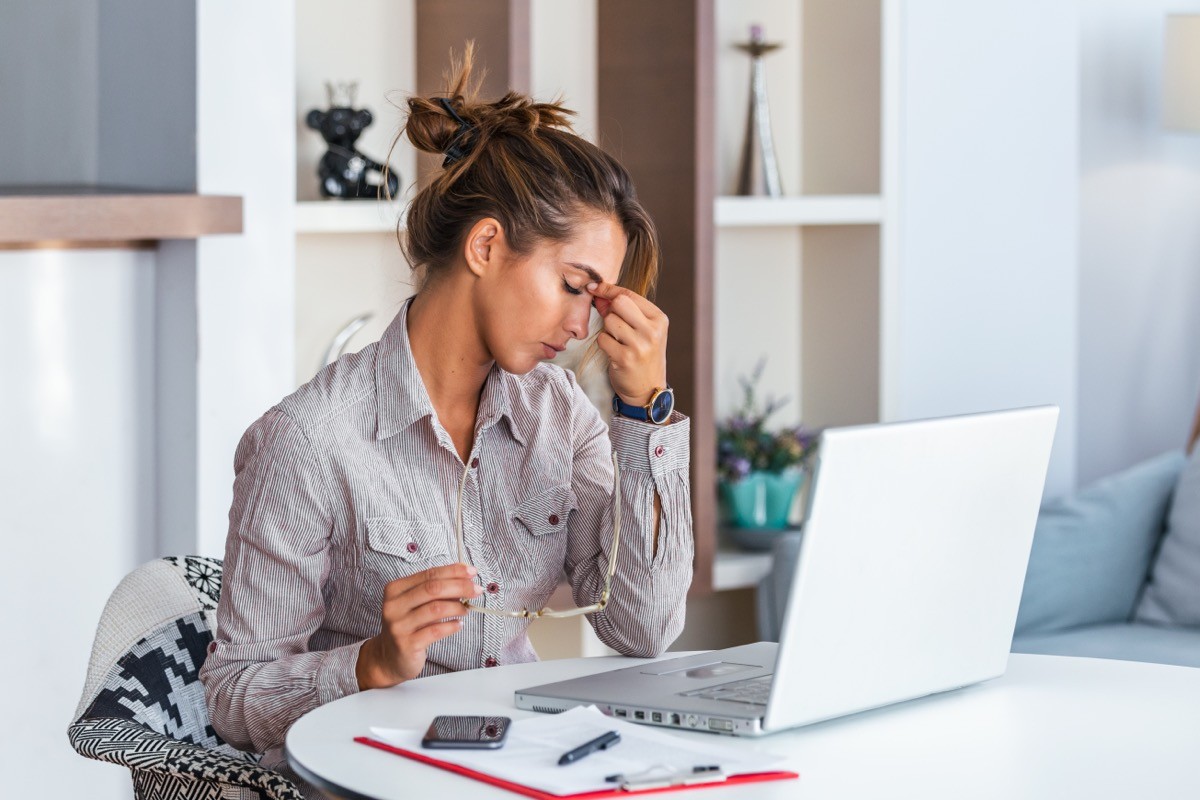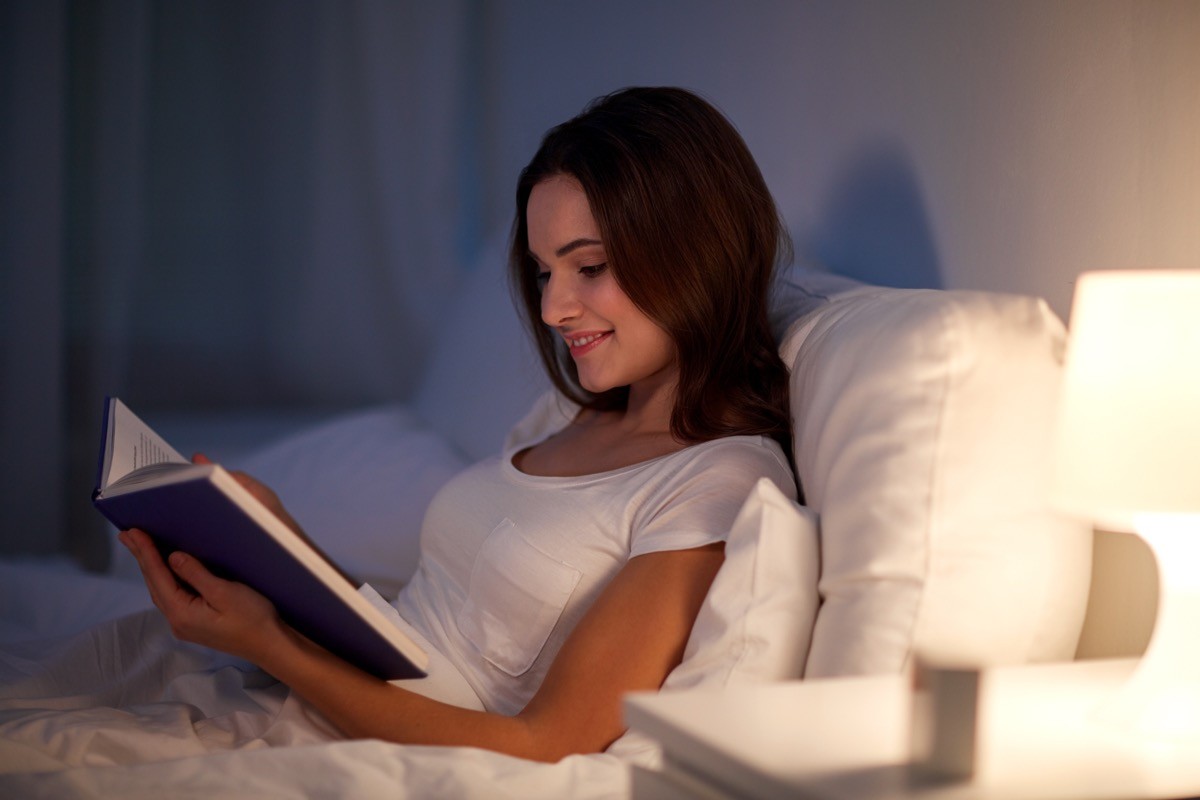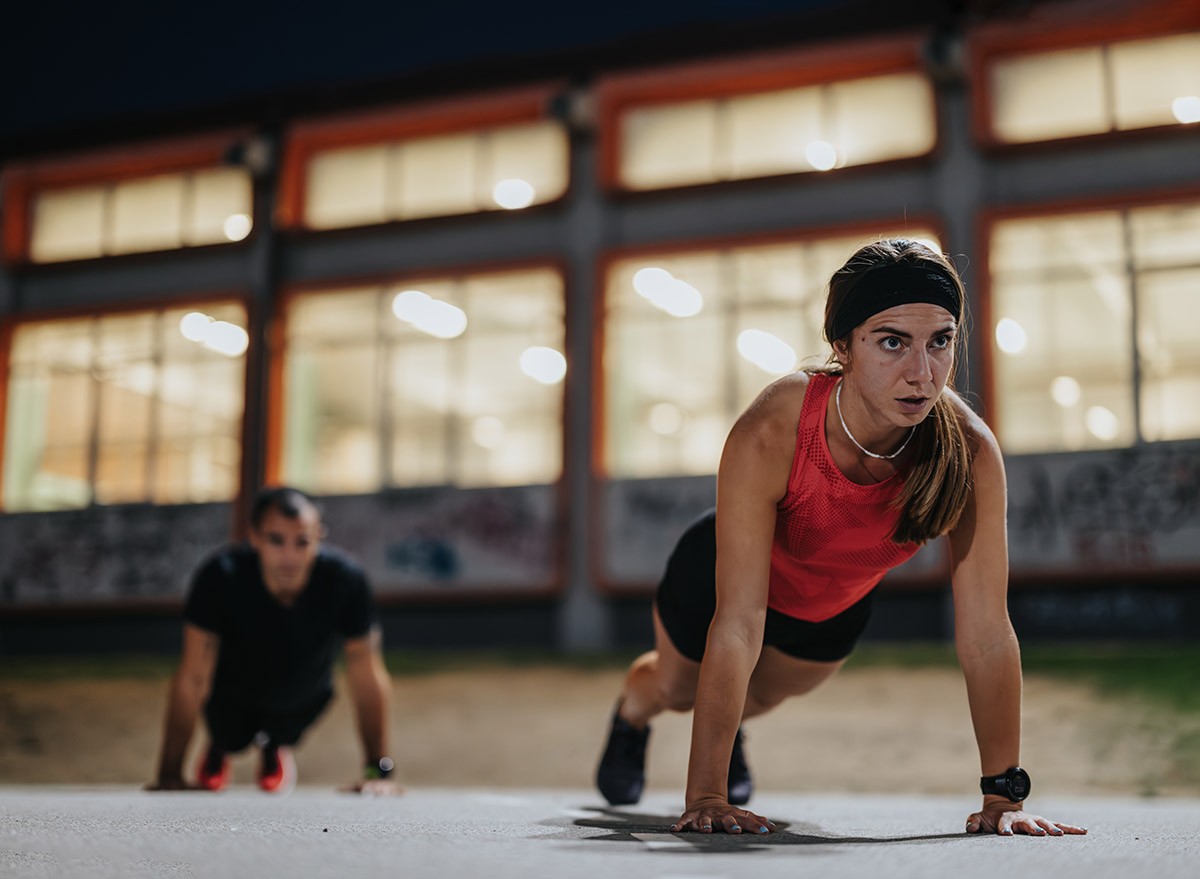The Tiny Habit That Science Now Shows Helps You Sleep Like a Baby Every Night

The science of sleep and the impact sleep has on health is getting the serious attention the issue deserves—research shows poor sleep is linked to a host of dangerous health conditions. “Getting a bad night of sleep now and then is annoying, but not a health risk,” according to Johns Hopkins Health. “However, chronic poor sleep may increase the likelihood of developing dementia, heart disease, type 2 diabetes, obesity and even cancers of the breast, colon, ovaries and prostate.” Now new research published in BMJ Open Sport & Exercise Medicine shows short bursts of activity right before bedtime can actually help encourage better sleep. Here’s what you need to know.
RELATED: This Is Why We Need to Sleep With Pillows.
Sitting Vs. Moving

Participants in the study did two four-hour sessions where they sat for long periods of time. One session had the participants just sit, while the other was broken up with three-minute activity sessions every half an hour for the duration. Researchers found the participants who did the activity breaks slept for 30 minutes longer than those who didn’t.
Movement Is Crucial For Health

This study highlights how important movement is, says Jennifer Gale, PhD candidate in the Department of Human Nutrition and lead author of the study, via News Medical. “We know that for many of us, our longest period of uninterrupted sitting happens at home in the evening. In our previous studies we have found that getting up and doing 2-3 minutes of exercise every 30 minutes reduces the amount of sugar and fat in your bloodstream after a meal. However, many sleep guidelines tell us we shouldn’t do longer bouts or higher intensity exercise in the hours before sleep, so we wanted to know what would happen if you did very short bouts of light intensity activity repeatedly throughout the evening.”
What Activities Did the Participants Do?

The people who had activity breaks would do chair squats, calf raises, and standing knee raises with straight leg hip extensions, according to primary investigator Dr Meredith Peddie, Senior Lecturer in the Department of Human Nutrition. “These simple, bodyweight exercises were chosen because they don’t require equipment, or a lot of space and you can do them without interrupting the TV show you are watching,” she says. “From what we know from other studies, you could probably get a similar effect if you walked around your house, marched on the spot, or even danced in your living room – the most important thing is that you get out of your chair regularly and move your body.”
RELATED: Feng Shui Bedroom Tips for Better Sleep.
New Guidelines?

This new research goes against some of the previous advice about working out close to bedtime. “We know higher levels of physical activity during the day promotes better sleep, but current sleep recommendations discourage high-intensity exercise before bed because it can increase body temperature and heart rate resulting in poor sleep quality,” Dr. Peddie says. “It might be time to review these guidelines as our study has shown regularly interrupting long periods of sitting is a promising health intervention.”
Benefits of Evening Workouts

There are benefits to working out later in the day, experts say. “The body’s ability to perform peaks in the afternoon and early evening for some people, with optimal muscle function, strength and endurance often occurring later in the day,” say the experts at the Mayo Clinic. “In addition, oxygen uptake kinetics — your body’s ability to take in oxygen and deliver it to the working tissues and the tissues’ ability to use the oxygen — are more favorable in the evening, allowing for more efficient fuel use during exercise. That means your body is primed for performance in the late afternoon and early evening, making it an ideal window for high-intensity activities like interval training, strength workouts or speed work.”